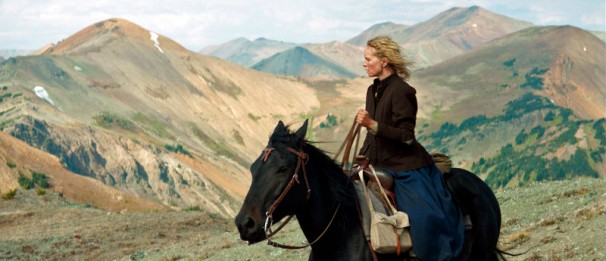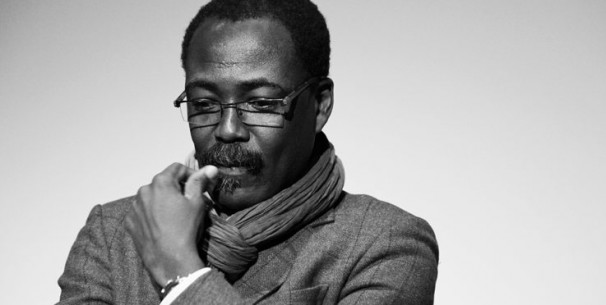- African cinema is the most commonly overlooked in almost every corner of the world except France and Italy, where a combination of a tradition of cinephilia along with cultural and colonial ties make these movies a real presence. Here in the U.S., African movies are often treated as beyond exotic, which is ridiculous. The new series, “Cameras d’Afrique: The Films of West Africa,” curated by LACMA’s film program in conjunction with Loyola Marymount University, will hopefully rectify part of this problem, and convey the fact that the West African filmmaking tradition is grounded in classical storytelling, myth and contemporary politics. Just this Saturday alone, at LACMA, the brilliant Chadian writer-director Mahamat-Saleh Haroun, Senegalese filmmaker Mama Keita (whose “L’absence” screens at 12 noon) and Gaston Kabore from Burkina Faso (whose “Buud Yam” screens at 1:45 p.m.) will make an unprecedented Los Angeles appearance for a panel discussion (3:30 p.m.) on the current, complicated state of West African cinema. It goes without saying that most of the films in the series are beyond rare, such as Ferid Boughedir’s 1983 doc history of African film, “Camera d’Afrique” (Tues. 7:30 p.m. at LACMA), from which the series, which runs until Oct. 28.
- In a week with a slew of releases totally (and rightly) dominated by Alfonso Cuaron’s sublime “Gravity,” two new, notable movies are arriving with barely a whimper. The first, Matt Johnson’s Canadian fiction-fact “The Dirties” (Arena Cinema in Hollywood), is one I’ve yet to catch up with, but which my Canadian friends tell me is a remarkable look at bullying. In his introduction to a fascinating interview with Johnson, my colleague Calum March at Cinema Scope magazine notes that while “there have been many films about bullying and many more about school shootings…few have been as interested in or attuned to the ordinary life that precedes the tragedy.”
- The second release is the second in a curious new trend in Los Angeles moviegoing: Auteurist art cinema non-fiction features released exclusively in the Valley. Last week, it was “Hiver Nomade.” This week, it’s Rithy Panh’s astonishing “The Missing Picture,” distributed by the wonderful Strand Releasing, and showing only at Laemmle’s Town Center 5. It’s fine that the Valley, typically underserved by major art cinema features, is getting some exclusives. But the rest of the city should get a chance to see Panh’s utterly unique film, one of the few outstanding premieres at this year’s Cannes film festival where it won the Un Certain Regard jury prize. Panh has singlehandedly revived Cambodian cinema with a groundbreaking series of documentaries exploring aspects of the Khmer Rouge’s killing fields. “The Missing Picture” is Panh’s first direct memoir of surviving the national nightmare, re-told not with actors but with tiny handmade figurines shot in diorama set pieces.

- Although “curated” (if that’s the word) by official German government agencies, “German Currents” at the Egyptian this weekend manages to actually include two extremely worthwhile movies: Thomas Arslan’s Klondike drama, “Gold” (Sun. 5 p.m.) and Tizza Covi’s and Rainer Frimmel’s engaging and affecting “The Shine of Day” (Mon. 7:30 p.m.). Arslan’s is especially noteworthy, since this extraordinarily gifted filmmaker has unjustly had few of his consistently strong movies shown here (his 2007 “Vacation” and stunning 2010 noir thriller “In Shadows” should be famous instead of being absurdly obscure). “Gold” marks a departure for this fascinating artist, who’s made a period piece rather than his usually contemporary settings.
- 14 years strong, the Polish Film Festival Los Angeles kicks off Tues. night at the Egyptian (through Oct. 17) with Piotr Trzaskalski’s “My Father’s Bike” and fills its program with a characteristic range of new Polish dramas and comedies, with a smattering of non-fiction and revivals.
Robert Koehler, a film critic for Film Comment, Cinema Scope and Cineaste, blogs about movies on arts·meme.

